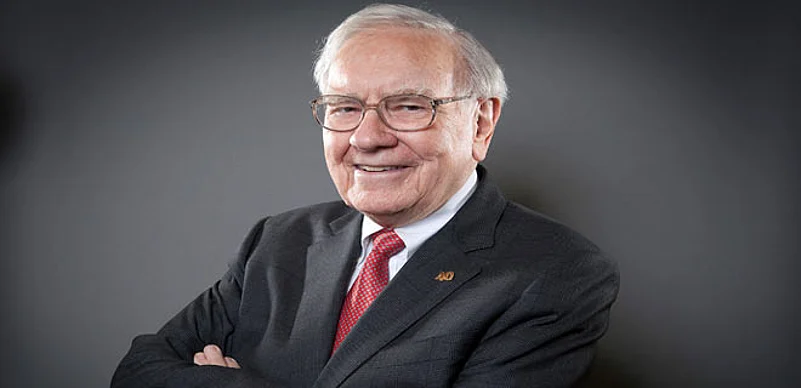I was still in college when I picked up a copy of The Intelligent Investor by Benjamin Graham (not Intelligent Investor, the original version of Outlook Money). I was not hooked to it as some of my friends, who later went on to be part of the investment management world. It was the time I also started reading about Warren Buffett, which was interesting and I must confess I was influenced by what I read. I started following everything that was available on Buffett and his infallible Berkshire Hathaway. I also discovered that Mr. Buffett’s Hathaway got the controlling stake in Geico (Government Employees Insurance Company) way back in 1996.
In my early phase of writing on personal finance, the insurance sector had just opened up and several private players had entered the market, with some amazingly interesting products. Many of these products were new for the Indian market. I had hoped Geico would also come into India, which did not happen in the first phase. It was not until 2011 when Berkshire Hathaway tied up with Bajaj Allianz to sell their insurance products, wherein Berkshire Hathaway acted as a corporate agent to sell insurance products of Bajaj Allianz General Insurance.
In fact, the insurance regulator was so keen to get time with Mr. Buffett that I believe he allowed them to jump the queue to get their license. The plan was to use Berkshire Hathaway’s online distribution portal and telemarketing channel to sell insurance. There was widespread coverage and splash about Mr Buffett’s maiden trip to India and that next he was going to invest big time in India. The tonality of the communication was such that like me, several people, at least in the insurance distribution space, started to think that things will change.
Yes, things changed—Mr. Buffett after the initial euphoria wound up the corporate agency two years later. He applied his own rule: “Rule No. 1: never lose money; rule No. 2: don’t forget rule No. 1,” before making an exit. The corporate agency business was very different from what Geico was into and the way they were operating in India did not make sense. Anyway, the euphoria to do business in India has come up again and a few months ago Mr. Buffett again initiated his interest in India. The insurance regulator has cleared a few levels of licences in the reinsurance space to Gen Re, a company promoted by Mr. Buffet.
My disappointment
A lot of what Mr. Buffett says sounds so familiar to Indian folklore. He is credited for the quote; “Someone is sitting in the shade today because someone else planted a tree long ago.” I have read similar stuff from the Hitopadesha and the likes. “There seems to be some perverse human characteristic that likes to make easy things difficult,” is what the analysis of Gita all about. Just the way ayurved and yog needed an ‘A’ to be fixed to them to find global acceptance and recognition to become popular as Yoga and Ayurveda, we need someone like Mr. Buffett to tell us practical and simple things.
I have a few friends and former colleague who have mastered the art of running algorithms to simulate Mr. Buffett’s stock picking to arrive at the Indian counterpart of his picks. At times I feel do we need a Buffett stamp to invest in HDFC Bank or ITC? Is it not obvious? And, as much as we would like to build on our standing by quoting Mr. Buffett, the truth is that he is not a big investor in Indian companies, the way he is in American companies. I love his approach to investing in what he knows—statement that resonated during the first digital wave in the late 1990s, when he maintained a distance from technology companies. Last weekend, he confided that he was a late entrant into Google.
On many occasions the Indian political system and governance is cited as reasons for Mr. Buffett not investing in India. This makes me think of two things. First, India and Indians are known to bring down some very well known and reputed people to their knees. In cricket, one of the greatest spinners, Shane Warne never managed to do well (by his usual standards) in India or against India. The same goes with Brian Lara, who set several records with almost every other cricketing nation, but India.
Of course, supporters of these cricketers, like that of Sir Richard Hadlee would argue that Indian pitches and conditions were not suitable. It is exactly my point, just the way some of the best in the world are good everywhere else, does not mean it has to be the best in India or manage to be the winning formula for India. Over the past two decades we have witnessed some of the most popular things globally fail miserably in India. It took Coke several years to find takers compared to Thums Up, which it had acquired in India.
I can go on with examples. But, unless Mr. Buffett invests in Indian companies and shares his approach that encouraged him to invest in them, I will go with what Radhakishan Damani, Rakesh Jhunjhunwala or Basant Maheshwari have to say. I will also rely on the approach taken by the late Parag Parikh and late Chandrakant Sampat, who in their own ways were instrumental in being investors setting rules and approach to investing in Indian companies.
I learnt more about value investing with the time I spent with Dhirendra Kumar of Value Research and the multi-faceted Devangshu Datta. Both of them were patient with me in explaining the concept of value investing to me, in a way I could understand it. But, due credit is needed to be given to Mr. Buffett for having created such a huge following on the principles of value investing. He has also been instrumental in keeping the investing culture alive in India. But with statements like India has potential, you are not doing us any great favour either.































